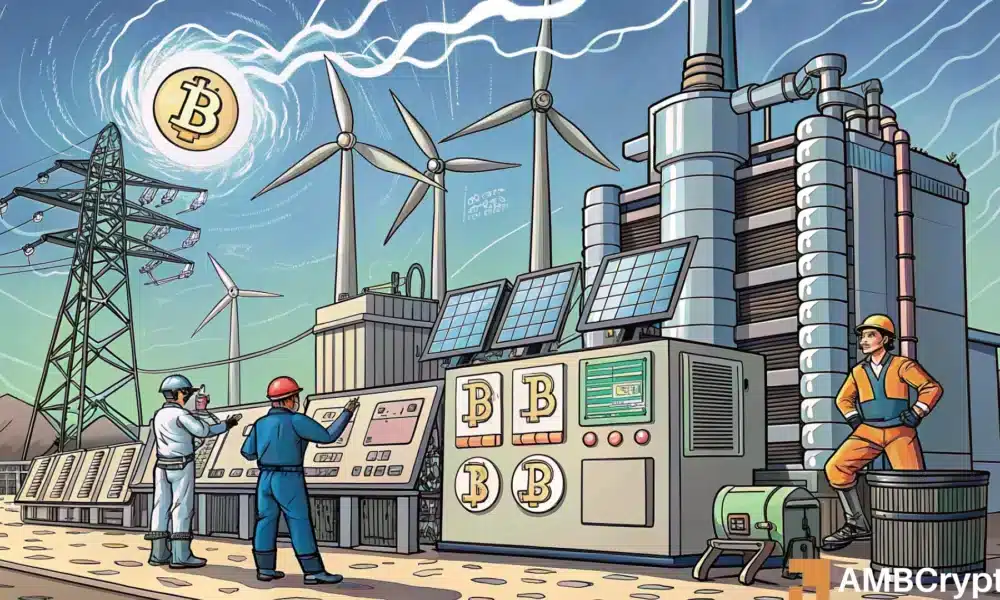Japan’s Strategic Move in Bitcoin Mining: A Model for Energy Management
In an innovative leap for both the cryptocurrency sector and energy management, Japan’s partially government-owned utility has initiated Bitcoin mining operations using Canaan’s advanced Avalon rigs. This progressive venture marks a pivotal moment as it utilizes surplus renewable energy during low-demand periods. The core objective is to enhance the efficiency of the power grid, thereby preventing energy waste and promoting sustainable energy usage. This initiative is not just a local development; it has significant implications on a global scale as Japan becomes a trailblazer in integrating Bitcoin mining with energy management systems.
Revolutionizing Bitcoin Mining Infrastructure
Canaan’s deployment of 4.5 megawatts (MW) of Avalon cryptomining machines in Japan represents a groundbreaking integration of Bitcoin mining and energy infrastructure. The hydro-cooled machines will operate as a dynamic buffer, powering down during periods of high grid demand and ramping up during times of energy surplus. This operational model positions Bitcoin as a digital load balancer, allowing utilities to harness otherwise wasted renewable energy. According to Canaan’s CEO, Nangeng Zhang, these advanced miners equipped with smart control chips are pivotal for bridging the gap between cryptocurrency mining and energy sustainability.
A Response to Energy Waste
Japan’s initiative comes at a time when global discussions about energy consumption and its environmental impacts are intensifying. By employing Bitcoin mining as a mechanism for grid stabilization, Japan stands at the forefront of the "clean crypto" movement. This model showcases that Bitcoin mining can contribute positively to energy efficiency rather than being labeled an energy waste. As such, Japan presents a paradigm shift in how we perceive the physical and regulatory infrastructure surrounding digital currencies, particularly when renewable resources are abundant.
Japan Joins the Ranks of State-linked Mining
Japan’s collaboration with Canaan marks the country’s entry into a select group of nations that intertwine state-owned utilities and Bitcoin mining. In fact, Japan has become the 11th country globally—outside the United States—where government-affiliated organizations engage in Bitcoin mining. This development confirms long-standing speculation in the industry about the potential for utilities like Tokyo Electric Power Company (TEPCO) to participate in crypto-mining activities. Now that the partnership is public, it solidifies Japan’s position among other state-linked mining jurisdictions, expanding the scope of Bitcoin within energy management globally.
Implications for the Global Energy Landscape
The ramifications of this initiative extend far beyond Japan’s borders. The acceptance of Bitcoin mining as a flexible load asset by a tightly regulated energy market such as Japan can inspire other countries—especially those with heavy reliance on fossil fuels—to re-evaluate their stance on cryptocurrency mining. By recognizing Bitcoin mining as a viable tool for energy management, it opens avenues for a broader acceptance of this technology in various regulated markets. This could lead to an upsurge in national strategies focusing on sustainability, ultimately paving the way for more countries to explore innovative methods of energy optimization.
A New Framework for Policy and Sustainability
As more utilities consider the innovations introduced by Japan’s state-linked utility, we may witness a transformative shift in public policy surrounding energy and cryptocurrency. The integration of Bitcoin mining for grid balancing not only fosters sustainable energy practices but also enhances the overall efficiency of power grids. Consequently, other regions can draw from Japan’s model in crafting similar frameworks that establish Bitcoin mining as an integral component of energy sustainability efforts. As the conversation evolves, the narrative surrounding Bitcoin mining could shift significantly—from one of waste to one of proactive energy management.
In conclusion, Japan’s pioneering efforts in Bitcoin mining demonstrate a unique convergence of cryptocurrency technology and energy management, which could serve as a roadmap for other nations. By harnessing surplus renewable energy for Bitcoin mining, Japan is not only optimizing its power grid but also redefining the global perception of cryptocurrency. This innovative approach could usher in a new era of sustainable practices in the cryptocurrency industry, changing the way we view energy consumption in the digital currency world.


